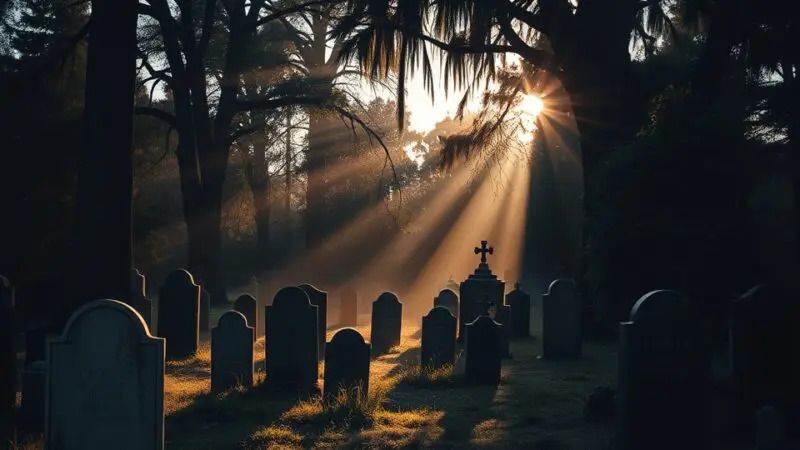Colin Campbell
Reflections in Abney Park

A cemetery is a strange place. Made so in large part perhaps by the phobia we moderns have about death and anything that pertains to it. Strange also in the modern context, because it is a kind of floating remnant of the dead amid the industry of the living. Here there is no future, only the past. Nor is there any further need for the measurement of production or the striving toward worth, or of the cultural values with which we are encumbered when living, for all that dies with each passing life. For those who lie beneath the stones there can only be decay, and for those who remain among the living, the hope of a return beyond the mere return of the body to the earth.
I have always feared cemeteries. I recall in my early childhood those many times when we drove past the cemetery in Gaborone on our way to and from school. My brother and sister are buried there. I would imagine them lying next to each other in their coffins, deep beneath the hardened arid earth. There was for me a morbid fascination with this image. “Are Claire and Ian skeletons yet?” I would ask my mother in the months that followed the car accident in which they died in May 1969.
Ironically, in contemplating terminality, I find myself inadvertently contemplating the eternal.
Yet sitting here in the cold semi-darkness amongst the silent gravestones, I am struck by how much my apprehension of death as an image of terminality, for my own existence at least, and to the extent that I can mentally encompass such a notion, enhances the sense of poignant beauty of this moment. Perhaps the possibility of fully experiencing the beauty of the moment is brought about in part by the derailing of my cognitive capacities—capacities that give rise to anxiety and the psychological coping strategies that arise in response. Like me, this moment will vanish into non-existence. It is here but for a minuscule fraction of time, an instant in eternity that flickers into life and then vanishes into nothingness once more.
The graveyard need not be a morbid memorial to all that is lost. Instead it can become the seed of an awakening to the extraordinary beauty and essential meaning of each moment of our existence, delicately etched as it is by the fundamentally transient nature of absolutely everything.
Ironically, in contemplating terminality, I find myself inadvertently contemplating the eternal.
In our course Fairy Tales from Around the World, you can join Colin Campbell for an exploration of The Firebird, an initiatory tale from the Bangwaketsi tradition in South Africa. The course features four other Jungian analysts and teachers from around the world. To learn more and sign up, click HERE.
Share
Other blog posts

Jung Platform is an online education space that offers a range of depth psychological and spiritual perspectives. Our courses and talks explore the journey of life with guidance from highly regarded teachers.
We are passionate about offering practical, life-enhancing tools and opportunities to connect with others on this path. Our aim is to help people connect to their own soul, so they can live more fully and colorfully.
Stay inspired.Get our magical updates.
Thank you for signing up!
FEATURED LINKS
-
Headquarters in Salt Lake City, Utah
-
info@jungplatform.com
-
Copyright © 2026
